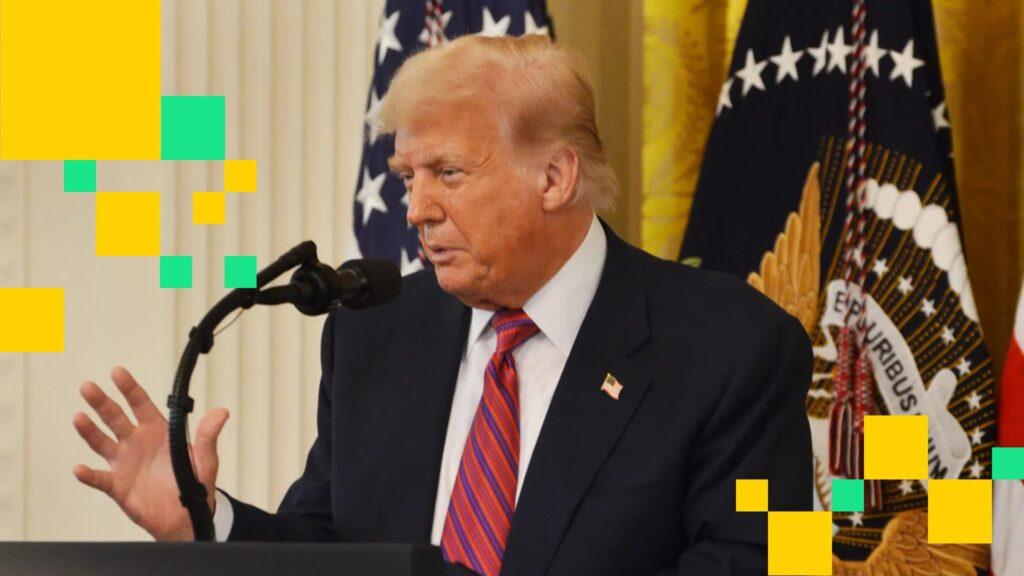In the first six months of this year — when crypto-booster President Donald Trump reversed the US government’s cautionary opposition to crypto — transaction volume in the United States rose by about 50% to clear $1 trillion, according to a report by TRM Labs published Tuesday.
The rapid rise was multifaceted, with institutions jumping into stablecoins and others getting into newly regulated products such as exchange-traded funds (ETFs), plus the increase in comfort levels for investors as US regulators and lawmakers began to move to establish industry rules.
As the US Securities and Exchange Commission and banking regulators kept crypto at arm’s length from the financial system during the Biden administration, the constant refrain from industry lobbyists was that the government was chasing innovators overseas. Trump promised to make the US the “crypto capital of the world” when he took office.
The 50% bump in the U.S. can be attributed in part to the “more favorable political and regulatory climate,” said Ari Redbord, TRM’s global head of policy.
“It is hard to say how much of this is due to offshore activity returning onshore, but the trend is consistent with growing confidence, clearer regulations and renewed capital formation in the US market,” he said.
TRM Labs, a digital asset research firm, maintains a country adoption index of global crypto activity, weighting it with economic factors that downplay the high transaction volume expected to be more associated with higher income countries. India has occupied the top of the list for three years in a row – a period of strong growth for crypto globally.
Pakistan, the Philippines and Brazil filled out the rest of the top five.
In the US, there was a sharp divide in crypto interest around the presidential election last year. In the six months following that date, web traffic to virtual asset service providers increased by 30%, the report said. Throughout July of this year, the White House issued executive orders on friendly crypto policies; The SEC established a crypto task force with the same goal; Congress passed a new law to regulate stablecoin issuers; and significant process was done on a broader market structure bill that passed the House of Representatives but has hit a current snag in the Senate.



